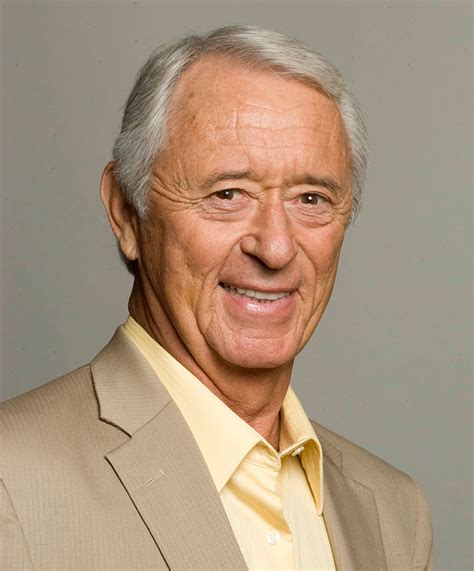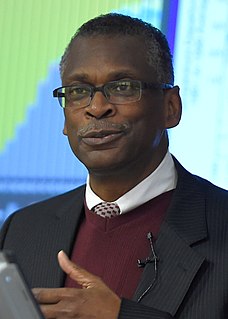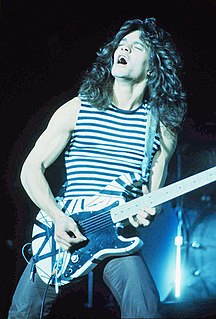A Quote by Naveen Jain
The human brain works as a binary computer and can only analyze the exact information-based zeros and ones (or black and white). Our heart is more like a chemical computer that uses fuzzy logic to analyze information that can't be easily defined in zeros and ones.
Related Quotes
We really are living in an age of information overload. Google estimates that there are 300 exabytes (300 followed by 18 zeros) of human-made information in the world today. Only four years ago there were just 30 exabytes. We've created more information in the past few years than in all of human history before us.
The term "informatics" was first defined by Saul Gorn of University of Pennsylvania in 1983 (Gorn, 1983) as computer science plus information science used in conjunction with the name of a discipline such as business administration or biology. It denotes an application of computer science and information science to the management and processing of data, information and knowledge in the named discipline.
An important verity about knowledge is that the brain works most effectively with consciously retained information. We more easily remember what we want to recall later. When we feed our fourteen billion brain cells with information that will enrich us and help others, we are really learning to Think Big.
I've never been much of a computer guy at least in terms of playing with computers. Actually until I was about 11 I didn't use a computer for preparing for games at all. Now, obviously, the computer is an important tool for me preparing for my games. I analyze when I'm on the computer, either my games or my opponents. But mostly my own.
I got my first patent in 1979 before I left the Air Force. I called it the Digital Distance Measuring Instrument. It used ones and zeros and dots and dashes and a magnifying lens to read binary-encoded information from a scale that was photographically reduced. It used the same kind of technology that's used in CDs and DVDs.
In a business setting, one's intelligence is crucial. Many problems faced by today's executives are unique and ill-defined. So, one's ability to analyze information and render a decision based upon the probability of success is imperative. What it comes down to is that all the knowledge in the world is useless if one has no means of processing and applying it. Organizations run on the brainpower of their people.
Right now, 70 percent of the people don't have computers. And where they're needed most, people don't have them. We think this will enable anyone to own a computer. We're aiming at everybody who uses a computer as an information access device. The original idea was to build one cheaply enough to put one on every desk.
Artificial intelligence uses a complex set of rules - algorithms - to get to a conclusion. A computer has to calculate its way through all those rules, and that takes a lot of processing. So AI works best when a small computer is using it on a small problem - your car's anti-lock brakes are based on AI. Or you need to use a giant computer on a big problem - like IBM using a room-size machine to compete against humans on Jeopardy in 2011.



































